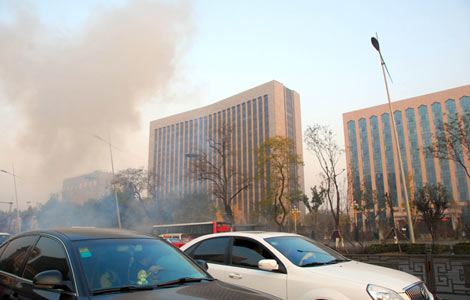Don't punish too much
Updated: 2013-11-07 09:31
(China Daily)
|
||||||||
An investigation is now underway into the death of a 10-year-old student in Chengdu, Sichuan province, who was believed to have committed suicide because his teacher asked him to write a thousand word self-criticism. It is time to reflect on whether such punishments do more harm than good, says an article in Beijing Youth Daily. Excerpts:
Although opposed by many students and some educators who think self-criticism not only damages a student's dignity but also fails to help them realize their mistakes, schools in general have not abandoned such "punishments", because for them, compared with expelling students, writing self-criticism seems a better way for students to reflect on their mistakes.
However, when adopting such educational methods, schools should pay special attention to balancing education with protection. First of all, writing self-criticism should never damage students' self-esteem. Also, when schools ask students to write "profound and soul-searching" self-criticism thinking it will take effect only after undergoing such "torture", they should be aware that the opposite is true.
Moreover, even though some schools have canceled public self-criticism, few have asked students and their parents to be involved in the management of the school and supervision of the students. Also students should be educated about the rules they are supposed to follow to avoid disputes once they are punished for breaking them.
This primary school in Sichuan province has to learn lesson from the boy's suicide. For example, it should consider whether self-criticism should still be practiced in the school. If yes, it should listen to the advice of teachers and parents and adopt ways of criticism acceptable to all. Also, the school should raise awareness of the law among teachers and students since cultivating citizens' legal awareness is one of education's responsibilities.
(China Daily 11/07/2013 page9)
Most Viewed
Editor's Picks

|

|

|

|

|

|
Today's Top News
U. Michigan gets grant for China center
Lead author of Obamacare law blames govt for rollout
China's increasing role in global nuclear power
US companies in China feel squeeze
Panda cub drawing votes for her name
US, China team up for wildlife
E China still top draw for foreigners
Firm breaks ground for new Suzhou facility
US Weekly

|

|















